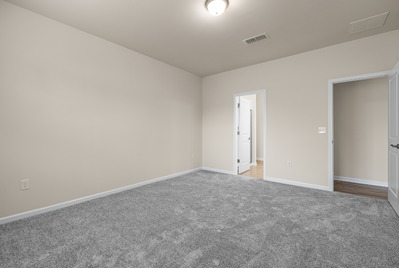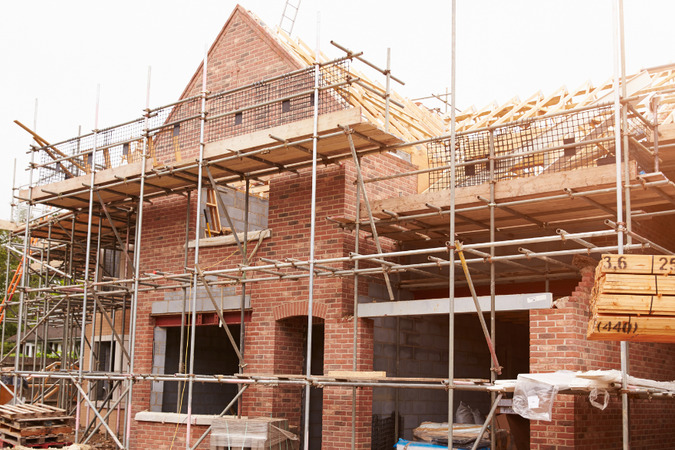The Queen's Speech and White Paper: what news was there on rental reform proposals?
Every May, the Queen’s Speech is given at the State Opening of Parliament, outlining the Government’s plans for the upcoming parliamentary session, which generally runs from one spring to the next. Briefing notes are then released, giving more details on the legislation that’s being proposed. This year, for the first time, Prince Charles stood in for Her Majesty.
While it’s certainly important for us to be aware of what legal changes are on the horizon, these proposals aren’t set in stone and it can be hugely frustrating to have legislation outlined, a possible date for its introduction suggested, then either no or very slow progress.
In the case of the Private Rented Sector (PRS), this is exactly what’s happened with the Renters Reform Bill, which was first proposed in December 2019. Having been delayed by the pandemic, the White Paper giving full details of the proposals – ‘A Fairer Private Rented Sector’ – was finally published on 16th June.
What's the latest on the Renters Reform Bill?
This Bill is planned to be wide-reaching and pledges to offer a ‘new deal’ to all renters. As in previous years, the Government has once again reiterated that it will provide “the biggest change to renters law in a generation”, although there have been some amendments since it was first proposed.
There are four key proposals that relate directly to the PRS, although the White Paper has expanded this to a ’12 point plan’ for changes:
- Providing decent homes in the PRS
There are two ways the government plans to improve the number of decent homes in the PRS.
Firstly, they aim to introduce the ‘Decent Homes Standard’. This minimum standard that currently applies to the social rented sector will be extended to the PRS for the first time, which the Government claims will “slash the £3 billion a year in housing benefit that is estimated to go to landlords renting out non-decent homes.” A consultation on this is due to be held this summer.
Secondly, they plan to identify and enforce the Decent Homes Standards through government pilot schemes. These will be tested with local authorities, which will be given more powers to pursue criminal landlords.
At Goodfellows, as members of ARLA Propertymark, we keep up to date with all the rules and regulations to ensure our rental properties meet the standards required. If we let and manage a property on your behalf, you can rest assured that when this legislation comes in, it will have little impact on you or your properties.
If you manage your property yourself and want to make sure you’re meeting this future standard now, just get in touch and our local experts will be happy to help you.
- Changes to tenancy agreements
There are three key changes proposed for future tenancy agreements.
The first, which has been well publicised in recent years, is that the Government is keen to move ahead with ensuring landlords can’t evict tenants unless they have a good reason. This means section 21 notices will be scrapped and instead, section 8 notices will be required for all evictions, meaning landlords will have to give a specified valid reason for requiring the tenant to leave their home.
Whether landlords evict a tenant via a section 21 or a section 8, almost every eviction comes about because the tenant has either breached a specific term in their tenancy agreement or is just not looking after the property well. Many landlords then use a section 21 for the eviction, because if the tenant refuses to leave, they can gain possession more quickly and easily via the ‘accelerated procedure’, which they can’t use with a section 8.
In Scotland, landlords have been unable to evict a tenant without citing at least one of 18 specific grounds since December 2017 and, so far, the only difference that seems to have been reported is that tenants feel more secure in their homes.
So the good news is that this end to evictions where no reason has to be given, has had little effect on landlords in Scotland and, if managed properly, should also have little impact on landlords in England.
The other two proposals are new. The second is that all tenancies will effectively move to ‘periodic’ tenancies, essentially bringing an end to ASTs and meaning that tenants will be able to give just two months’ notice to a landlord at any point during their agreement.
Finally, landlords will only be allowed to increase rents once a year and if they’re excessive, the tenant will have a right to challenge the rise. At Goodfellows, we believe landlords should increase rents annually as a matter of course, in line with the cost of living. This helps ensure you earn enough in rental income over time to pay for repairs and keep the property legally let in a good condition. As such, we don’t see that applying small increases each year should present any issues for landlords moving forward.
- A new private rental property portal
The original Renters Reform proposals suggested a landlord register, but this new recommendation takes the idea further. The White Paper explains that the new digital Property Portal will “provide a single ‘front door’ to help landlords understand, and demonstrate compliance with, their legal requirements.” The aim is to make it easier for landlords and tenants to understand their rights and responsibilities.
In addition, they state: ”Local councils will be able to take enforcement action against private landlords that fail to join the portal” - so, in effect, this is a form of landlord registration.
- Better dispute resolution
There are several changes to the proposals in the White Paper that we think are good news for landlords. And one thing the Government has been clear to state is that it plans to reduce the current “unacceptable” delays in the time it takes for court hearings for landlords to repossess their properties.
The most likely way that this will work is by the introduction of a PRS ombudsman scheme, which will facilitate mediation between landlords and tenants when there are disputes. That should help free up the court system for more serious cases.
Rental Reform: Landlords will need a good reason to refuse pets
One significant addition to the rental reform proposals, which have just been detailed in the long-awaited White Paper, is that landlords should no longer be able to refuse pets without a good reason. This has drawn a lot of media attention, but it is important to be aware there is protection for landlords.
The new rule would be an extension of the situation that already applies if landlords or agents are using the government’s model tenancy agreement, where all tenants have the right to request a pet in their home. The landlord must consider the request and respond in writing within 28 days if they object, giving a good reason – such as the property not being suitable for the type of pet or, if it’s a leasehold property, there being a clause stating that pets are not allowed.
Although landlords are not currently allowed to charge tenants any additional fees for pets, the Government has said that with the introduction of this new rule, they will amend the Tenant Fees Act 2019 to allow pet insurance as a permitted payment by tenants. So, in the Government’s own words: “This means landlords will be able to require pet insurance, so that any damage to their property is covered.”
We’d suggest that as tenants are increasingly looking for long-term homes and pets are becoming more and more popular, it’s already worth considering allowing them. In our experience, when a tenant finds a comfortable home that suits both them and their pet, they’re less likely to move and will usually take good care of the property.
Social Housing Regulation Bill: moving forward
The Queen’s Speech itself also directly referenced “legislation to improve the regulation of social housing to strengthen the rights of tenants and ensure better quality, safer homes”. This Bill, which was introduced to Parliament on 8th June, will make all registered social housing providers subject to a tough new regime, with failing social landlords facing unlimited fines if they fall short of required standards. Social tenants will also be given greater powers and improved access to redress.
You can read a transcript of the Queen’s Speech here and the background briefing notes here. And with the rental reform White Paper just published, we’ll bring you any further updates on the proposals in next month’s newsletter. In the meantime, if you have any questions about upcoming PRS reforms, we’re always here to help – just get in touch with your local Goodfellows Branch.






